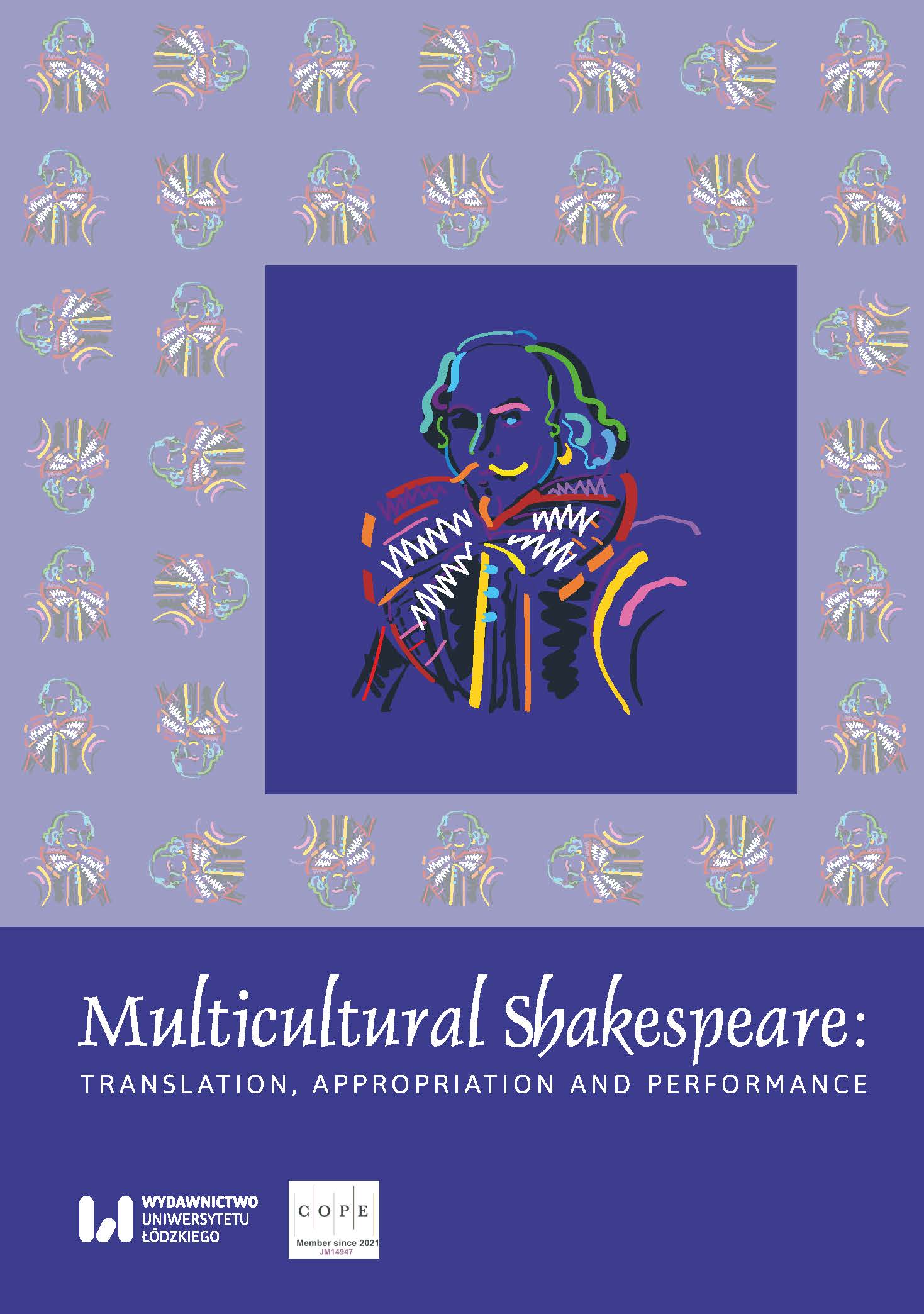Activist Discourse and the Origins of Feminist Shakespeare Studies
DOI:
https://doi.org/10.18778/2083-8530.27.09Keywords:
Anna Murphy Jameson (1794-1860), Margaret Fuller (1810-1850), feminist literary criticism, Shakespeare’s Heroines (1832), Woman in the Nineteenth-Century (1845), Romantic literature, Romantic literary criticism, Romantic sociability, nineteenth century public sphereAbstract
This essay reconsiders interpretations of Shakespeare by Irish writer Anna Murphy Jameson and the American Transcendentalist Margaret Fuller. Developing an informal method in which the voice of the female critic rallies in defence of Shakespeare’s heroines, they intervene in a male-dominated intellectual sphere to model alternative forms of women’s learning that take root outside of formalized institutional channels. Jameson, in Shakespeare’s Heroines, invokes the language of authentic Romantic selfhood and artistic freedom, recovering Shakespeare’s female characters from earlier critical aspersion as figures of exceptional female eloquence and resilience; she adopts a conversational critical voice to involve her female readers in the interpretative process itself. Fuller, in Woman in Nineteenth Century, speaks authoritatively as a kind of female prophet to argue that women’s creative reinterpretations of Shakespeare point the way to a revitalization of a sterile literary critical field. Both writers call for the reform of women’s education through revisionist interpretations of history attuned to the representation of female exceptionalism. In embryonic form, these nineteenth century feminist writings formulate a persistent strain of socially engaged, activist feminist criticism of Shakespeare.
Downloads
References
Adams, Kimberly VanEsveld. Our Lady of Victorian Feminism: The Madonna in the Work of Anna Jameson, Margaret Fuller, and George Eliot. Athens, OH: Ohio University Press, 2001.
Google Scholar
Addams, Jane. “A Modern Lear.” Shakespeare in America: An Anthology from the Revolution to Now. Ed. James Shapiro. New York: Library of America, 2013. 266-81.
Google Scholar
Booth, Alison. “The Lessons of the Medusa: Anna Jameson and Collective Biographies of Women.” Victorian Studies 42.2 (1999): 257-288.
Google Scholar
DOI: https://doi.org/10.1353/vic.2000.0003
Browning, Elizabeth Barrett. Aurora Leigh. Ed. Margaret Reynolds. New York: Norton, 1996.
Google Scholar
Crunden, Robert M. Ministers of Reform: The Progressives’ Achievement in American Civilization, 1889-1920. New York: Basic Books, 1982.
Google Scholar
Ellison, Julie. Delicate Subjects: Romanticism, Gender, and the Ethics of Under-standing. Ithaca, NY: Cornell University Press, 1990.
Google Scholar
Emerson, Ralph Waldo. “Nature.” Emerson’s Prose and Poetry: Authoritative Texts, Contexts, Criticism. Eds. Joel Porte and Saundra Morris. New York: Norton, 2001: 27-55.
Google Scholar
Fuller, Margaret. Woman in the Nineteenth Century. Ed. Larry J. Reynolds. New York: Norton, 1998.
Google Scholar
Greene, Gayle and Coppélia Kahn. “Feminist Scholarship and the Social Construction of Woman.” Making a Difference: Feminist Literary Criticism. Eds. Gayle Greene and Coppélia Kahn. New York: Routledge, 1985: 1-36.
Google Scholar
DOI: https://doi.org/10.4324/9781003071044-1
Gustafson, Sandra. “Eloquent Shakespeare.” Shakespearean Educations: Power, Citizenship, and Performance. Eds. Coppélia Kahn, Heather S. Nathans, and Mimi Godfrey. Newark: University of Delaware Press, 2011: 71-91.
Google Scholar
Hankey, Julie. “Victorian Portias: Shakespeare’s Borderline Heroine.” Shakespeare Quarterly 45.4 (1994): 426-448.
Google Scholar
DOI: https://doi.org/10.2307/2870965
Hazlitt, William. “Shakespeare.” Selected Writings. Oxford: Oxford University Press, 1991: 323-335.
Google Scholar
Hoeckley, Cheri L. Larsen. “Introduction.” Shakespeare’s Heroines: Characteristics of Women Moral, Poetical, and Historical. By Anna Jameson. Toronto: Broadview Press, 2005: 9-37.
Google Scholar
Jameson, Anna Murphy. Memoirs of Celebrated Female Sovereigns. 2nd ed. London: Saunders and Otley, 1834.
Google Scholar
Jameson, Anna Murphy. Shakespeare’s Heroines: Characteristics of Women Moral, Poetical, and Historical. Ed. Cheri L. Larsen Hoeckley. Toronto: Broadview Press, 2005.
Google Scholar
Johnson, Samuel. “Preface to the Plays of William Shakespeare.” Samuel Johnson: Selected Poetry and Prose. Eds. Frank Brady and W. K. Wimsatt. Berkeley: University of California Press, 1977:
Google Scholar
Kelley, Mary. Learning to Stand and Speak: Women, Education, and Public Life in America’s Republic. Chapel Hill: University of North Carolina Press, 2006.
Google Scholar
Kemp, Susan P. and Ruth Brandwein. “Feminisms and Social Work in the United States: An Intertwined History.” Journal of Women and Social Work 25.4 (2010): 341-364. Knight, Louise W. “Biography's Window on Social Change: Benevolence and Justice in Jane Addams’s ‘A Modern Lear.’” Journal of Women’s History 9.1 (1997): 111-138.
Google Scholar
DOI: https://doi.org/10.1177/0886109910384075
Malachuk, Daniel. Perfection, the State, and Victorian Liberalism. New York: Palgrave, 2005.
Google Scholar
DOI: https://doi.org/10.1057/9781403982247
Polwhele, Richard. “The Unsex’d Females.” 1798.
Google Scholar
Russell, Anne E. “‘History and Real Life:’ Anna Jameson, Shakespeare’s Heroines and Victorian Women.” Victorian Review 17.2 (1991): 35-49.
Google Scholar
DOI: https://doi.org/10.1353/vcr.1991.0012
St. Clair, William. “Shakespeare.” The Reading Nation in the Romantic Period. Cambridge: Cambridge University Press, 2004. 140-57.
Google Scholar
Trilling, Lionel. Sincerity and Authenticity. Cambridge, MA: Harvard University Press, 1972.
Google Scholar
DOI: https://doi.org/10.4159/9780674044463
Wallace, Miriam L. “Women Write Back: Alternative Legal Rhetorics in Inchbald, Wollstonecraft and Opie.” Women’s Writing 23.1 (2016): 68-86.
Google Scholar
DOI: https://doi.org/10.1080/09699082.2015.1103992
Wharton, Edith. The House of Mirth. London: Wordsworth Editions, 1998.
Google Scholar
Downloads
Published
Versions
- 2023-12-20 (2)
- 2023-11-23 (1)
How to Cite
Issue
Section
License

This work is licensed under a Creative Commons Attribution-NonCommercial-NoDerivatives 4.0 International License.












